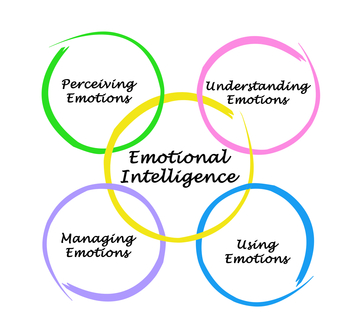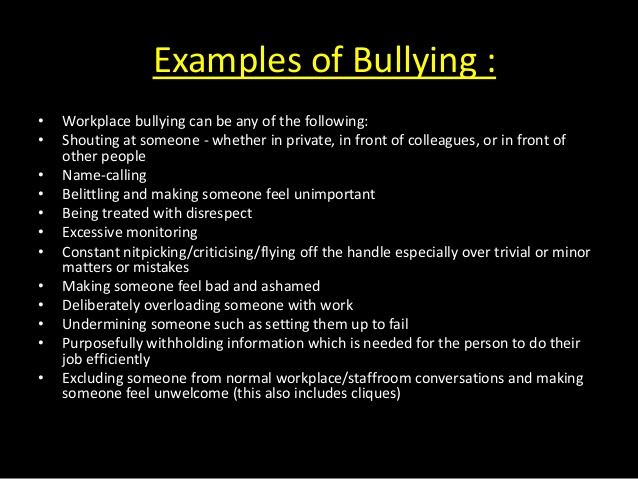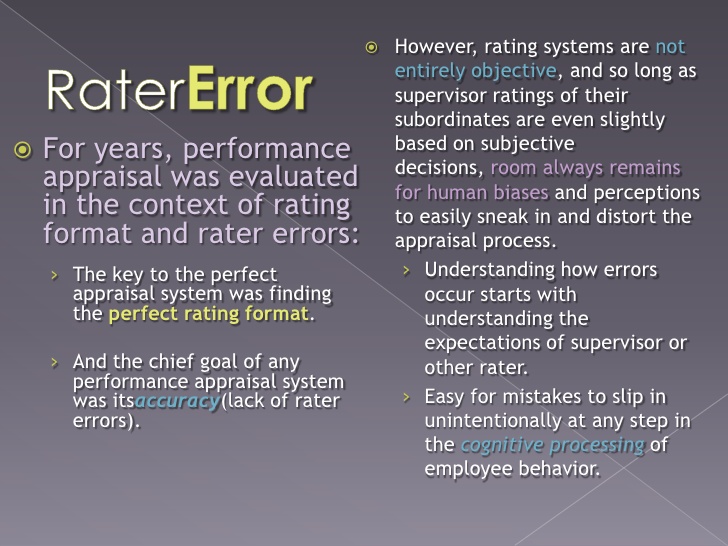
Whistleblowing: Factors that Contribute to Management Accountants Reporting Questionable Dilemmas
Whistleblowing is a term used to describe when a person with inside knowledge, usually a company employee, discloses corporate wrongdoing to the public or to internal or external authorities. In the 1980s states began to provide protection to employees who reported corporate wrongdoing. The Whistleblower Protection Act of 1989 extended these protections to the federal level. Over the last decade, whistleblowing has escalated in an environment of increased corporate misconduct. Increased legal protections for whistleblowers can also be attributed to this rise. The enactment of the Sarbanes-Oxley Corporate Reform Act of 2002 provided whistleblowers with a new level of increased protection. These increased protections include, but are not limited to, discharge, demotion, suspension, harassment, or discrimination in any way against whistleblowers. The law also established criminal penalties where executives who retaliated against whistleblowers could receive up to 10 years imprisonment. Sarbanes-Oxley also required companies to adopt procedures so that whistleblower complaints could be brought forth without fear of reprisal. The law also includes provisions that streamline whistleblowing cases so they are not delayed for many months or years by administrative hearings and other time-consuming procedures.
The passing of the Sarbanes-Oxley Act placed an increased emphasis on the ethical values of accounting professionals. In their article entitled, Whistleblowing: Factors that Contribute to Management Accountants Reporting Questionable Dilemmas, Tara Shawver and Lynn H. Clements looked at various factors that affect the likeliness of an accountant blowing the whistle. These factors include philosophical values, anonymity, cash reward, ethical climate, organizational commitment, job satisfaction, enforcement of a code of ethics, and job guarantees. This study found the most important considerations when it comes to predicting whether the accountants would blow the whistle were that they were guaranteed their job security and assured anonymity. Other factors such as “job satisfaction, organizational commitment, perception of ethical values, and perceptions of an enforced ethics code are not significant factors in the whistleblowing intentions for this sample of practicing management accountants.” (Management and Accounting Quarterly Journal, Vol. 9, No. 2, Winter 2008, p.26).
This article reports on a study containing three scenarios involving unethical behavior in the workplace. The first case involved approving a company purchase of a software program for personal use valued at $29.95. The second case involved using company funds to purchase a laptop and printer for $1,900 intended for personal use of a family member. Case 3 involved the embezzlement of $100,000. The study’s findings showed that the respondents felt that all the scenarios presented were unethical; however, they were more likely to blow the whistle on situations involving higher monetary amounts.
Relation to Ethics
When a company incorporates a code of ethics into its business practices, it helps assure that business is conducted in a fair and professional manner. A company’s ethical conduct should be an integral part of its corporate landscape. Management should encourage ethical conduct in the workplace with the aim of creating an atmosphere of trust within the organization. In that way, if workers trust that managers will listen and fix a problem, then they do not feel compelled to resort to whistleblowing. When trust is present in the workplace, the need for whistleblowing is greatly reduced due to the open and honest policies management has fostered when employees feel safe and secure raising any issue and are confident that the issue in question will be resolved. Research shows that employees are much more likely to report corporate wrongdoing to outside authorities when they feel the company’s management will not be responsive to them. Research also indicates that employees are much more likely to report corporate wrongdoing internally when they believe the company’s top management will address the issue that lower-level managers have ignored.
In its own way, whistleblowing can be a positive piece of a company’s overall strategy for social responsibility. Social responsibility can be defined as “the way its managers and employees view their duty or obligation to make decisions that protect, enhance, and promote the welfare and well-being of stakeholders and society as a whole” (Gareth R. Jones and Jennifer R. George, Contemporary Management, Sixth Edition). Socially responsible companies promote an environment of trust, goodwill, and confidence which are all attributes for a good corporate reputation that can be a competitive advantage when promoting its good and services. That in turn can lead to increased business and profitability.
 Whistleblowing prevents unnecessary harm to stakeholders by exposing unethical practices and corporate wrongdoing. A company is in business to make a profit, but not at any cost. Whistleblowing would identify financial fraud, abuse, waste, and corruption which would negatively affect a company’s performance. Fraud and corruption destroy shareholders’ value and can seriously threaten a company’s development. Companies should incorporate ethical corporate excellence into their business practices. It is important that companies place a high value on fairness, honesty, integrity, and respect with all stakeholders of the company. These stakeholders include, but are not limited to, the stockholders, managers, employees, customers, suppliers, and distributors.
Whistleblowing prevents unnecessary harm to stakeholders by exposing unethical practices and corporate wrongdoing. A company is in business to make a profit, but not at any cost. Whistleblowing would identify financial fraud, abuse, waste, and corruption which would negatively affect a company’s performance. Fraud and corruption destroy shareholders’ value and can seriously threaten a company’s development. Companies should incorporate ethical corporate excellence into their business practices. It is important that companies place a high value on fairness, honesty, integrity, and respect with all stakeholders of the company. These stakeholders include, but are not limited to, the stockholders, managers, employees, customers, suppliers, and distributors.
Stockholders who see managers behaving unethically may refuse to invest in their companies, and this will decrease the stock price, undermine the companies’ reputations, and ultimately put the managers’ jobs at risk.
Ultimately, companies will be more effective and efficient so business will be more viable due in part to the companies’ positive reputation and integrity.
My Reaction
I feel that even with protections in place, whistleblowers can still face potential retaliation and can be blacklisted in the industry. Is speaking out going to be in the company’s or public’s best long-term interest? When you make the decision to whistle-blow, you must carefully consider your reason. It should not be out of revenge. You should have the company’s or public’s best interest in mind when you make the decision to go public. Sometimes whistleblowing might be the only way the company or the public can find out about a serious problem or the only way it can get corrected.
The study found that theoretically that whether there was a cash reward was not significant. In reality, whistleblowers have received high monetary rewards. Some whistleblowers have undergone retaliation by job loss or in some cases imprisonment where whistleblower protections breakdown. Consider the high-profile whistleblowing case of Bradley Birkenfeld.
Birkenfeld was a banker who exposed the illegal tax shelters created by Swiss banks for Americans. He received a federal prison term as a result of the information uncovered by his whistleblowing. Ironically, he could also be the recipient of a significant cash reward when the IRS recovers tax revenue that the American accountholders were trying to shelter in the Swiss accounts. What sounds good in theory may not hold up in real-life situations where human nature comes into play. Another problem associated with whistleblowing is the stigma of being a snitch, which has a significant negative image within our culture.
Also, gender may have an impact on whistleblowing. The authors also note that future research would be helpful in considering gender differences when it comes to whistleblowing. Other research casts an interesting light on gender roles. Some researchers believe that men are more likely to whistle-blow than women due to their potential financial gain. Other data suggest that within the last several year’s women are more likely to become whistleblowers as a result of their perceived ethical duty. Such were the high-profile whistleblowing cases of Sherron Watkins, Vice President of Enron, and Cynthia Cooper, an auditor with WorldCom, who was named Time Magazine “Year of the Whistleblower” Persons of the Year for 2002.
The article examines different hypothetical situations for whistleblowing but does not take into consideration human behavior especially in today’s tough economic climate even with protections in place. I believe that it is somewhat questionable that employees would whistle-blow which could place their career in jeopardy. There is always going to be doubt as to just how secure organizational safeguards protect anonymity.
There are a lot of personal variables involving whistleblowing and one is how well people are educated about ethical and moral issues. Another variable centers around cultural differences because different cultures may have varying standards of what is acceptable. That said, whistleblowing can also be open to personal or organizational biases. An additional variable is to what extent these behaviors are traditionally acceptable or professionally acceptable. In my opinion, whistleblowing often is far from black and white – it is more like varying shades of gray because of all the different human variables involved.

 ancient Buddhist practice which is about paying attention in a particular way, in the present moment, on purpose and non-judgmentally. According to Dr. Jon Kabat-Zinn, professor of medicine emeritus at the University of Massachusetts Medical School, mindfulness is the art of being in the “now”—living fully in the present. It focuses on becoming fully aware of one’s thoughts and feelings and accepting them, but not attaching or reacting to them. With mindfulness, there is no “right” or “wrong” way to think or feel in any given moment.
ancient Buddhist practice which is about paying attention in a particular way, in the present moment, on purpose and non-judgmentally. According to Dr. Jon Kabat-Zinn, professor of medicine emeritus at the University of Massachusetts Medical School, mindfulness is the art of being in the “now”—living fully in the present. It focuses on becoming fully aware of one’s thoughts and feelings and accepting them, but not attaching or reacting to them. With mindfulness, there is no “right” or “wrong” way to think or feel in any given moment.

 Two weeks after I was lured away from a secure job, I was informed by my new employer that they were retiring and closing the business. I was devastated.
Two weeks after I was lured away from a secure job, I was informed by my new employer that they were retiring and closing the business. I was devastated.
 Most Americans take some time off during the summer, and I’m no exception. Most years I take a staycation. But, in 2013 and again in 2015, I was blessed where I could take my family to Europe. Since I would have no access to phone or email, I had to wrap up all loose ends prior to my vacation so my co-workers wouldn’t have to deal with any messes while I was away.
Most Americans take some time off during the summer, and I’m no exception. Most years I take a staycation. But, in 2013 and again in 2015, I was blessed where I could take my family to Europe. Since I would have no access to phone or email, I had to wrap up all loose ends prior to my vacation so my co-workers wouldn’t have to deal with any messes while I was away. In a nutshell, emotional intelligence is the ability to understand and manage one’s own moods and emotions and the moods and emotions of other people. When individuals experience stressful feelings and emotions, emotional intelligence enables them to understand why and helps them manage these feelings so they do not get in the way of effective decision making. Individuals with high EI are proven to be effective leaders as they are empathetic, self-aware and hold themselves accountable to how their behavior influences those around them.
In a nutshell, emotional intelligence is the ability to understand and manage one’s own moods and emotions and the moods and emotions of other people. When individuals experience stressful feelings and emotions, emotional intelligence enables them to understand why and helps them manage these feelings so they do not get in the way of effective decision making. Individuals with high EI are proven to be effective leaders as they are empathetic, self-aware and hold themselves accountable to how their behavior influences those around them.


 Whistleblowing prevents unnecessary harm to stakeholders by exposing unethical practices and corporate wrongdoing. A company is in business to make a profit, but not at any cost. Whistleblowing would identify financial fraud, abuse, waste, and corruption which would negatively affect a company’s performance. Fraud and corruption destroy shareholders’ value and can seriously threaten a company’s development. Companies should incorporate ethical corporate excellence into their business practices. It is important that companies place a high value on fairness, honesty, integrity, and respect with all stakeholders of the company. These stakeholders include, but are not limited to, the stockholders, managers, employees, customers, suppliers, and distributors.
Whistleblowing prevents unnecessary harm to stakeholders by exposing unethical practices and corporate wrongdoing. A company is in business to make a profit, but not at any cost. Whistleblowing would identify financial fraud, abuse, waste, and corruption which would negatively affect a company’s performance. Fraud and corruption destroy shareholders’ value and can seriously threaten a company’s development. Companies should incorporate ethical corporate excellence into their business practices. It is important that companies place a high value on fairness, honesty, integrity, and respect with all stakeholders of the company. These stakeholders include, but are not limited to, the stockholders, managers, employees, customers, suppliers, and distributors.

 managers have an ethical obligation to conduct employee appraisals in the most impartial and unbiased way possible. Researchers have recently distinguished two different types of performance appraisals: one based on the rational and the other based on the political perspective. The rational approach is designed to use objective criteria to assign accurate ratings. The goal of the political approach is subjective in nature and can use ambiguous standards which are designed to increase the degree of latitude provided to a manager when evaluating an employee. Prior studies have found that many managers have manipulated the performance appraisal process for political purposes. To reduce employee discord and workplace dissonance, managers have been found to give higher ratings to employees to keep them content. Higher ratings can also be given to obtain a promotion for preferential employees. Lower ratings can often be given to employees as a signal that they are no longer held in high esteem by the organization and it may be time to seek employment elsewhere. Low ratings can also be given by managers as a form of retaliation. However, lower ratings can be detrimental to employers because it can lead to decreased motivation, increased turnover, and increased risk of litigation.
managers have an ethical obligation to conduct employee appraisals in the most impartial and unbiased way possible. Researchers have recently distinguished two different types of performance appraisals: one based on the rational and the other based on the political perspective. The rational approach is designed to use objective criteria to assign accurate ratings. The goal of the political approach is subjective in nature and can use ambiguous standards which are designed to increase the degree of latitude provided to a manager when evaluating an employee. Prior studies have found that many managers have manipulated the performance appraisal process for political purposes. To reduce employee discord and workplace dissonance, managers have been found to give higher ratings to employees to keep them content. Higher ratings can also be given to obtain a promotion for preferential employees. Lower ratings can often be given to employees as a signal that they are no longer held in high esteem by the organization and it may be time to seek employment elsewhere. Low ratings can also be given by managers as a form of retaliation. However, lower ratings can be detrimental to employers because it can lead to decreased motivation, increased turnover, and increased risk of litigation.